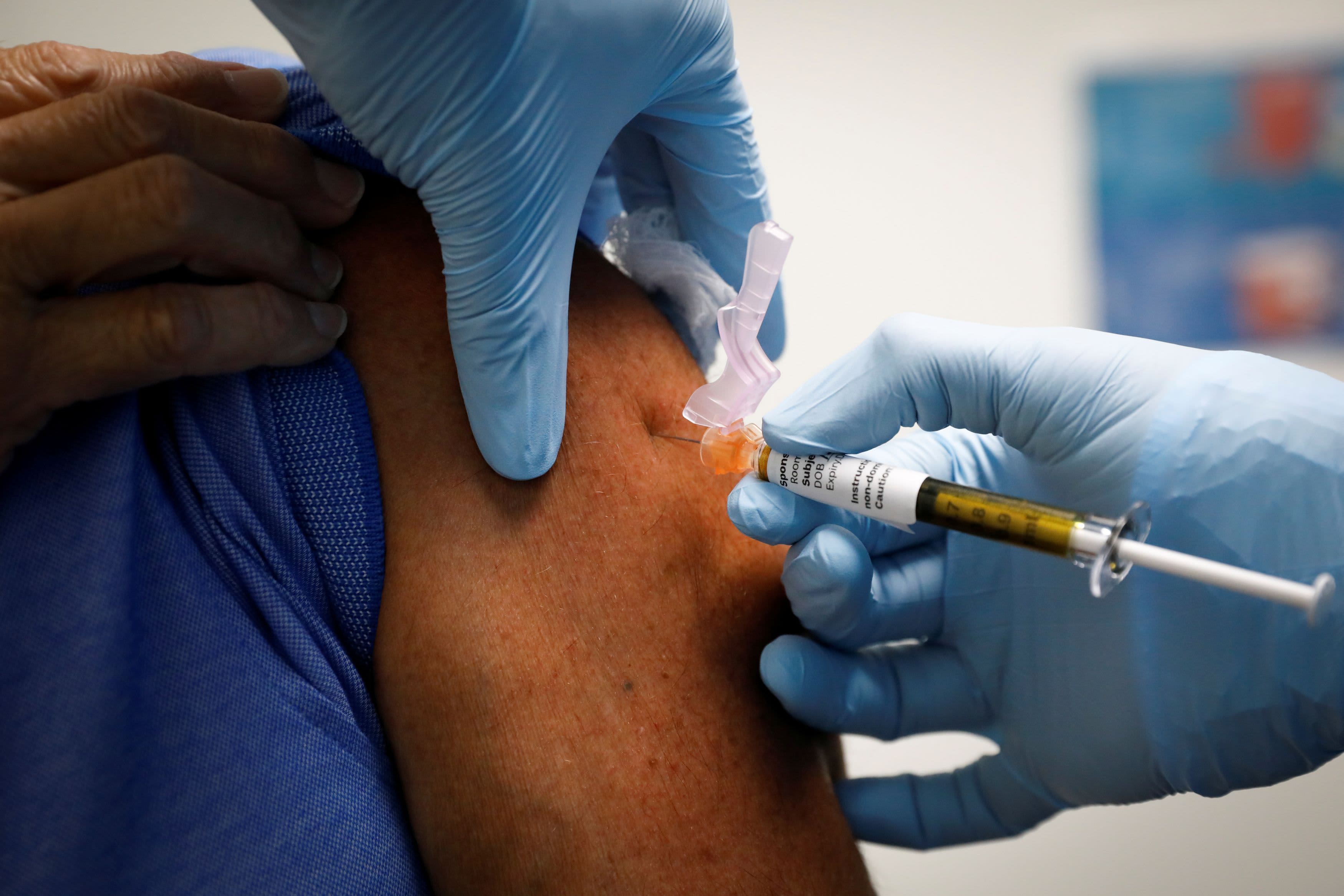The recent pauses to clinical trials examining a potential coronavirus vaccine and therapeutic due to safety concerns should not cause the American public to worry, Dr. Tom Frieden, former director of the Centers for Disease Control and Prevention, told CNBC on Tuesday.
Rather, Frieden said, it is evidence that drugmakers and regulators are maintaining a commitment to the rigorous scientific principles that govern trials, even as they seek to accelerate development timelines during the Covid-19 pandemic.
“It’s kind of paradoxical, but actually it’s reassuring, because we expect to see signals that may not indicate a problem and we expect to see companies stopping so they can look carefully,” said Frieden, who led the CDC from 2009 to 2017 under the Obama administration. “It gives reassurance that we’re not cutting corners on safety.”
Frieden’s comments Tuesday on “Closing Bell” followed news that a late-stage trial of Eli Lilly‘s antibody treatment for Covid-19 was being paused by U.S. regulators so a potential safety concern could be evaluated.
Just a day earlier, Johnson & Johnson confirmed its large-scale coronavirus vaccine trial was being paused as the safety monitoring board examined an “adverse event” in a participant. It is not known yet whether the person received the vaccine or a placebo.
British pharmaceutical company AstraZeneca‘s vaccine trial remains on hold in the U.S. after an unexplained illness was reported in a participant in the United Kingdom. However, regulators in the U.K. and other countries have allowed trials to resume.
Medical experts say the trial pauses are not uncommon in the development of vaccines and drugs, which typically takes years to complete. But the recent safety stoppages have received heightened attention with the world in the throes of a pandemic that has killed more than 1 million people and devastated economies.
In the U.S., in particular, there also has been growing concern that approval of a coronavirus vaccine may be rushed by the Trump administration for political reasons. The head of the Food and Drug Administration, Dr. Stephen Hahn, has sought to assuage those worries, saying he has “no intention” of overruling career scientists at the agency.
Frieden acknowledged the trust concerns about the vaccine, but the former New York City health commissioner stressed the need for the public to wait for more information before reaching conclusions. “People say, ‘Would you take a vaccine?’ If you asked me, I’d say, ‘Well, it depends what the data shows,” he said. “As time goes on, we’ll learn more.”
